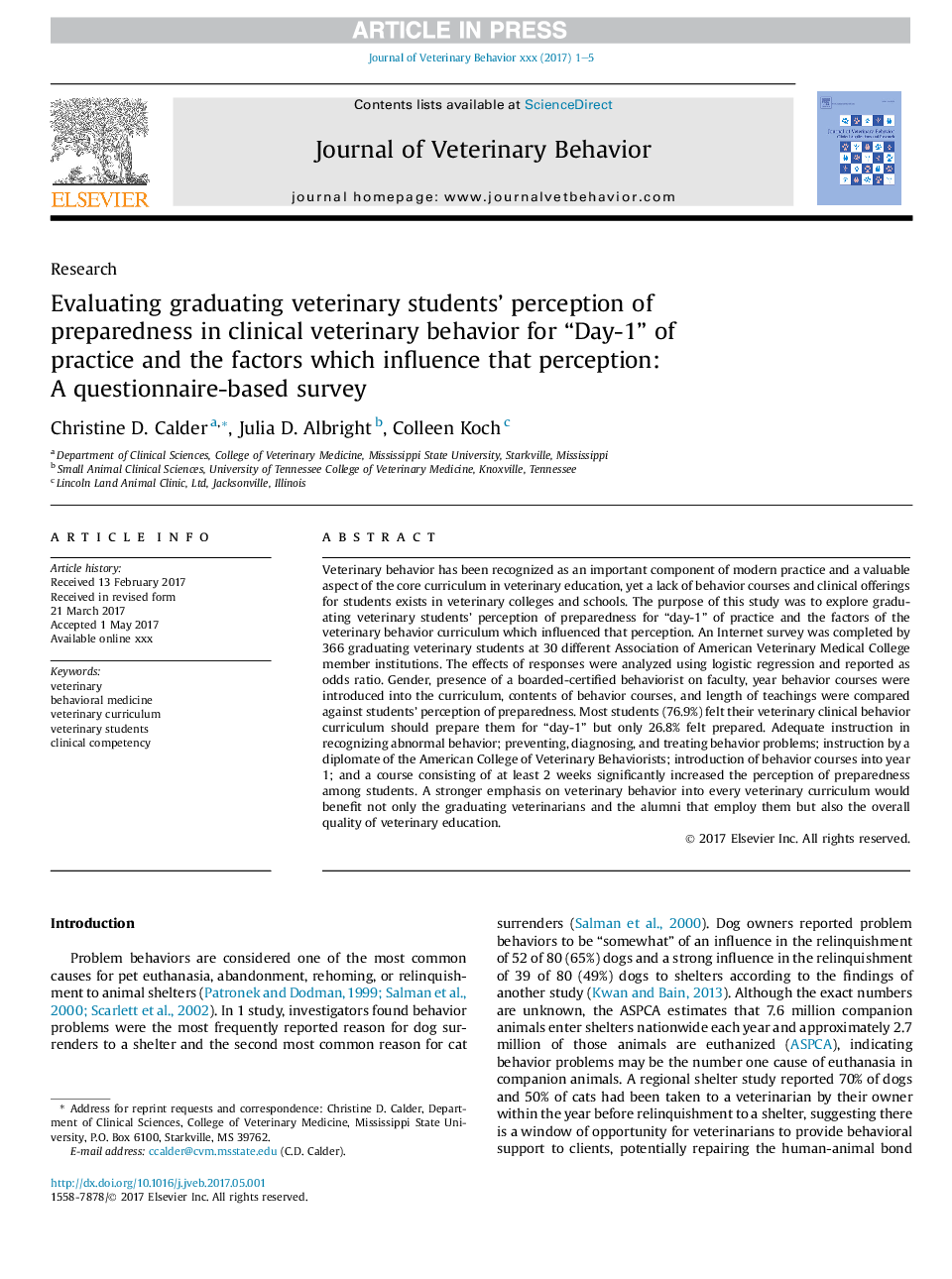| Article ID | Journal | Published Year | Pages | File Type |
|---|---|---|---|---|
| 5535836 | Journal of Veterinary Behavior: Clinical Applications and Research | 2017 | 5 Pages |
Abstract
Veterinary behavior has been recognized as an important component of modern practice and a valuable aspect of the core curriculum in veterinary education, yet a lack of behavior courses and clinical offerings for students exists in veterinary colleges and schools. The purpose of this study was to explore graduating veterinary students' perception of preparedness for “day-1” of practice and the factors of the veterinary behavior curriculum which influenced that perception. An Internet survey was completed by 366 graduating veterinary students at 30 different Association of American Veterinary Medical College member institutions. The effects of responses were analyzed using logistic regression and reported as odds ratio. Gender, presence of a boarded-certified behaviorist on faculty, year behavior courses were introduced into the curriculum, contents of behavior courses, and length of teachings were compared against students' perception of preparedness. Most students (76.9%) felt their veterinary clinical behavior curriculum should prepare them for “day-1” but only 26.8% felt prepared. Adequate instruction in recognizing abnormal behavior; preventing, diagnosing, and treating behavior problems; instruction by a diplomate of the American College of Veterinary Behaviorists; introduction of behavior courses into year 1; and a course consisting of at least 2 weeks significantly increased the perception of preparedness among students. A stronger emphasis on veterinary behavior into every veterinary curriculum would benefit not only the graduating veterinarians and the alumni that employ them but also the overall quality of veterinary education.
Related Topics
Life Sciences
Agricultural and Biological Sciences
Animal Science and Zoology
Authors
Christine D. Calder, Julia D. Albright, Colleen Koch,
